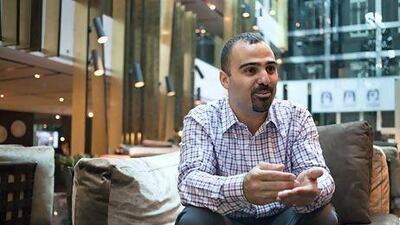Samer Abboud is a research fellow at the German Institute for International and Security Affairs in Berlin and teaches history at Arcadia University in the United States. He has studied the flight of capital from Syria as the revolution in that war-torn country progressed over the past two years.
Who are the worst hit amid the violence?
That would be the small enterprises - many with fewer than 12 employees - who form the core of Syrian business. A lot of them stayed back in the country but their productivity has been destroyed because their markets, supply chain, houses and labour sources have been destroyed, and they have no cash in hand to sit through it. People and businesses who left had the ability to leave. The conflict is pauperising the SMEs [small and medium enterprises] and is pushing them into the [low-skilled] labour market.
How are the smaller enterprises coping with the conflict?
They either engage in the black market where people sell goods at higher prices, have collapsed, or are engaged in the war economy as larger private companies are under sanctions and cannot do business. Around a third of Syrian businesses have gone to Egypt, according to Al Arabiya News.
What are the different business groups in Syria?
The biggest businesses in Syria comprise a handful who can control [most] of the economy through social and family linkages with the regime. They are the political and traditional Damascene elite. Their fate is tied to that of the regime. The second group is the business elite. They are the ones who have left and put money into productive use. The third group is the SME sector, who comprise 95 per cent of the community. They have largely not left and are coping with the conflict.
Will the political and traditional elite leave?
They won't disappear as their assets are tied to the country such as real estate and factories, and it would be extremely difficult to divert their assets.
How will that impact the decision of who comes after the conflict?
The politics of the business groups stem from their ability to be a social force, a political ally, and their ability to play a role in the reconstruction of Syria post-conflict.
You say foreign investment in the post-conflict landscape doesn't signal a bright future. Why?
Because the aim during reconstruction would be to turn the economy not into sweatshops but labour intensive industry, but most often the priority is to flood the market with goods. Would the money go into public works? If so, then it is good. But you also need money from outside because there are no public resources to fund reconstruction, no tax base and no tax administration.
Can you talk about the research you have done on the banking activities by Syrian businesses in neighbouring countries?
Parsing out how much of Syrian capital has made its way into regional banks has been extremely challenging. Obviously, banks do not release figures on the nationality of account holders or depositors, so I have had to start with general information about deposit increases, transactions, and things of that nature, and to complement it with qualitative research on Syrian business activity in the region. Lebanon poses particularly interesting problems because of the long-running and existing business relationships between Syrians and Lebanese and between Syrians and Lebanese banks. For the first few months and even years of the Syrian conflict, Lebanese banks did not report significant spikes in deposits.
All increases in the first two years were modest, but this seemed to betray the realities of the presence of so many Syrians in Lebanon.
When we dig a little deeper we find that many Syrians had existing accounts or partnerships with Lebanese that their funds were channelled through, or, in many cases in Bekaa, for example, Syrians sunk their money directly into businesses that they established with Lebanese partners, circumventing the formal banking system altogether.
A minority of Syrian wealth actually exists in the formal banking system and so it is not easily tracked.

